Hip hop trio Kneecap on rapping in Irish – and the raucous movie of their lives
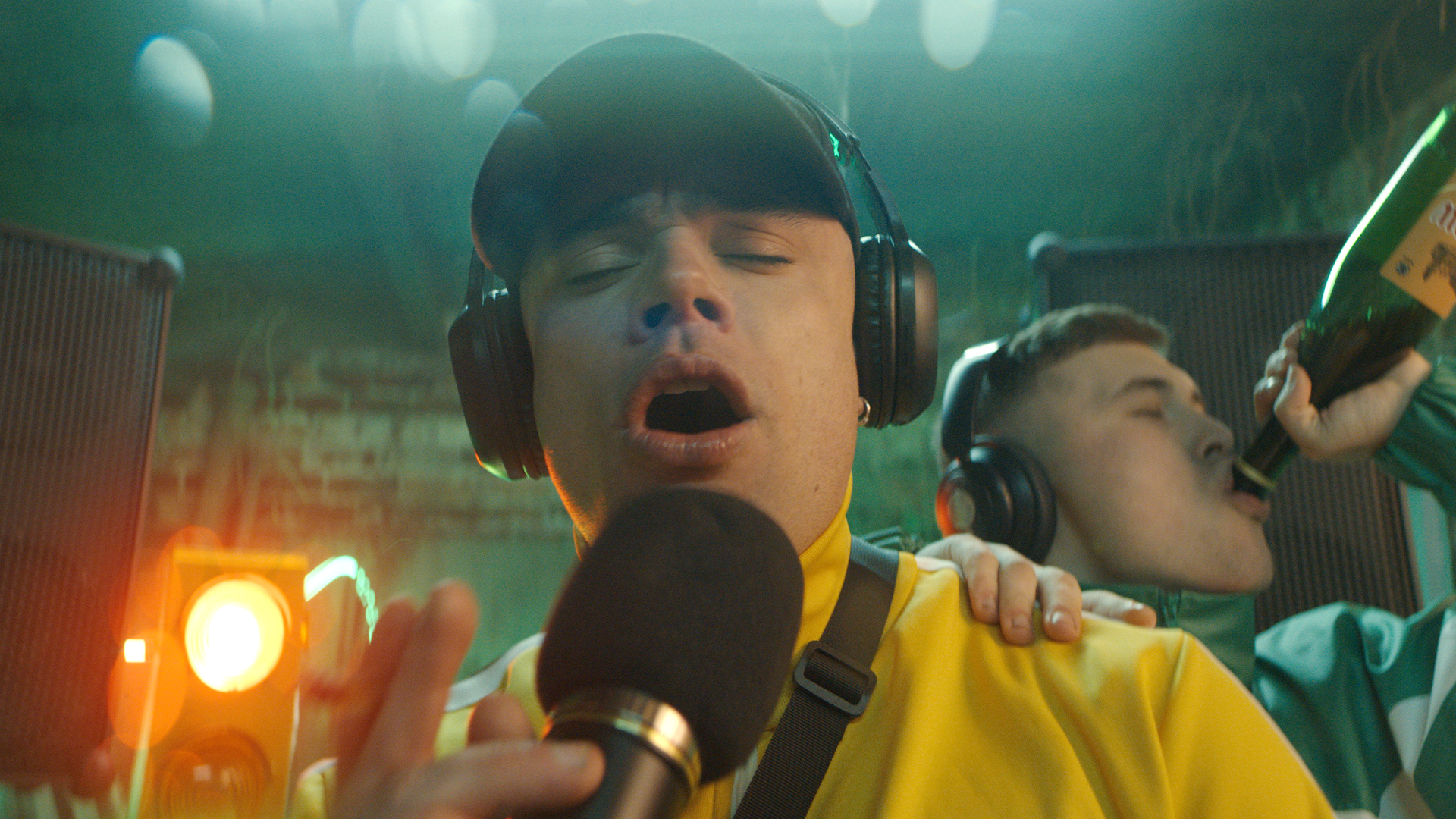
Making a splash at Sundance this year and now hitting film festivals elsewhere, hip hop trio Kneecap play themselves in an irreverent love letter to rapping in their own language. Stephen A Russell chats with the proudly Irish and prolifically profane group.
Sex scenes in movies set a phalanx of easily offended moral crusaders a-flapping. Goodness knows what this puritanical mob will make of Kneecap, the furiously funny filmic spin on the origin of the Irish-language hip hop group of the same name (taken from the body part paramilitaries shot during The Troubles).
The lads—Naoise Ó Cairealláin, better known as Móglaí Bap, Liam Óg Ó Hannaidh AKA Mo Chara and JJ Ó Dochartaigh as DJ Próvai—play themselves alongside two-time Oscar nominee Michael Fassbender.
Fuelled with Buckfast and accidental ketamine trips, it’s chaotic good, with the aforementioned hook-up hilariously lobbing an incendiary joke at the expense of notorious former British Prime Minister Margaret Thatcher (who appears on a dart board). The loaded barb had several producers sweating bullets.
“A lot of people wanted it pulled, but Rich [Peppiatt, the director] and all of us were fucking adamant that the character, from that Unionist background, would say it,” Móglaí Bap grins. “It’s fucking funny and it’s staying.”
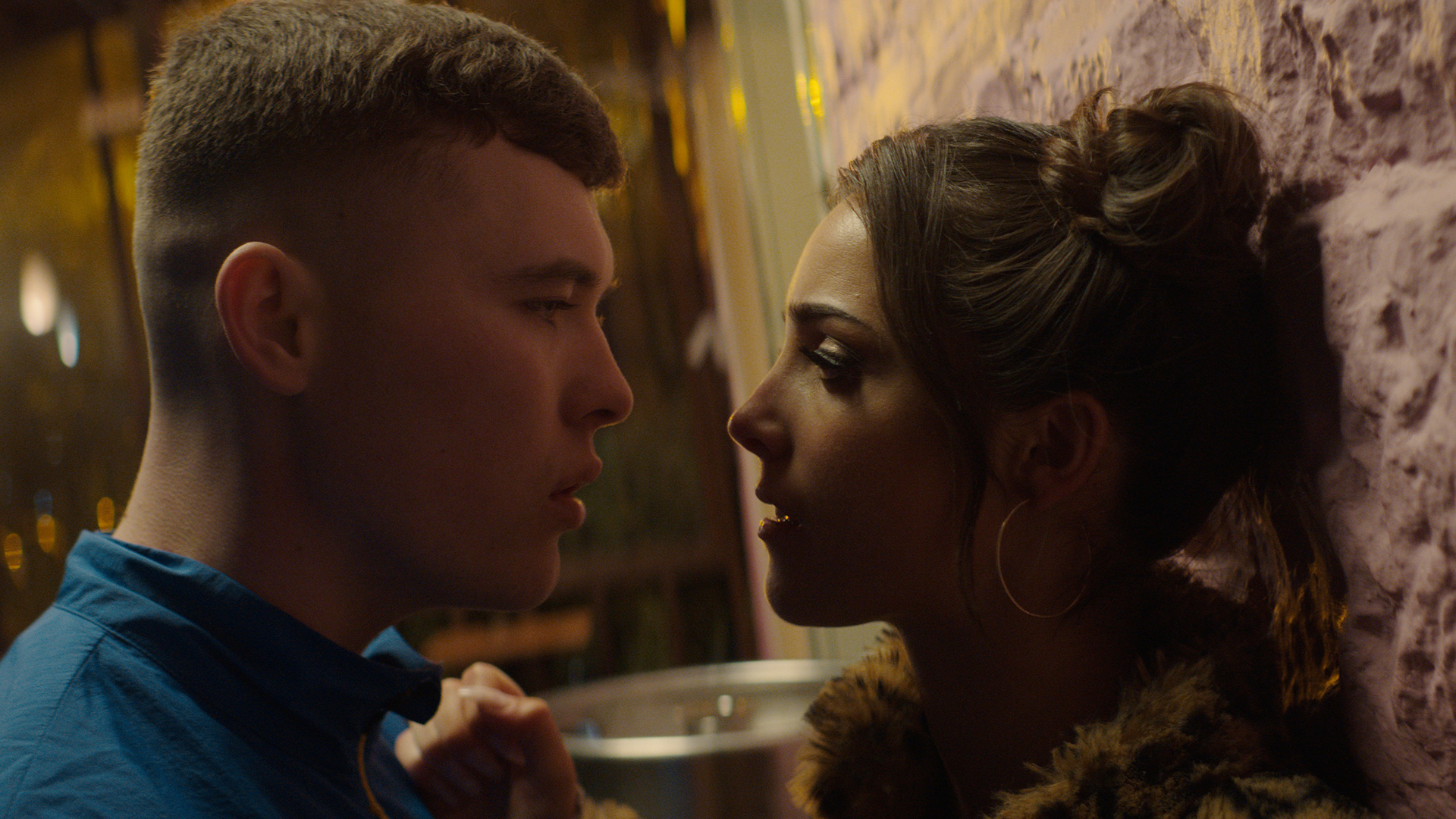
Raised in West Belfast on rebel songs, Móglaí Bap and Mo Chara were still kids when 1998’s Good Friday Agreement brought a ceasefire to the conflict. Into hip hop, they were frustrated by the nascent Irish scene’s tendency to borrow American slang.
“Then The Rubberbandits came along and they were the next best thing, because they used their own accents and talked about how having a horse is far superior to a Mitsubishi or a Subaru,” Móglaí Bap chuckles.
Raised to speak (and sing) Irish with pride, they realised they’d have to do it themselves. It was only recognised as an official language in the north of Ireland—as Kneecap prefers—in 2022.
Kneecap is set amidst the impassioned protest to make that happen. As the film opens, Mo Chara’s lifted by the police—AKA the peelers—during a club drug bust. DJ Próvai’s high school Irish teacher is called in to translate when the younger man refuses to speak English. Recognising their gift for razor-sharp retorts, DJ Próvai ushers the lads into his lock-up and dusts off his old Numark controller.
“We all learned how to produce hip hop because it was the best way to tell our story,” Mo Chara recalls. “So we smoked a lot of joints, sat up in the fucking attic and worked away on GarageBand until we got something that sounded roughly manageable.”
“We were in that attic for about two years by the time we got out of the dope haze,” Móglaí Bap laughs.
Going viral
Debut track C.E.A.R.T.A (Rights) went off, despite being banned by Irish-language RTÉ Raidió na Gaeltachta.“A lot of bands have to really fucking grind to get anybody at their gigs, but we released that song and where we’re from, it went low-level viral, like chlamydia,” Mo Chara says. “We got a lot of fans really quickly.”
A hunger for the language crossed sectarian lines for a new generation. “Rural areas have spoken Irish for a long time, but we’re seeing it resonate with people in the cities a lot more now,” Móglaí Bap says. “That’s a core element of the movie, identity.”
Music and comedy can reconnect intransigent sides. “What the movie’s trying to do here is to break that ice of the past and the things we thought we couldn’t talk about,” Móglaí Bap says. “We can bring it up and have a bit of a laugh.”
That includes scenes of the boys fleecing doctors for prescription drugs to sell by feigning intergenerational trauma. But it’s kinda true, too.
“With the fucking dark of Irish history, you’ve got to laugh or you could cry, and there was enough crying done,” Mo Chara insists. “There has to be some harsh truths in there, but we do it in a comical way that does create a dialogue.”
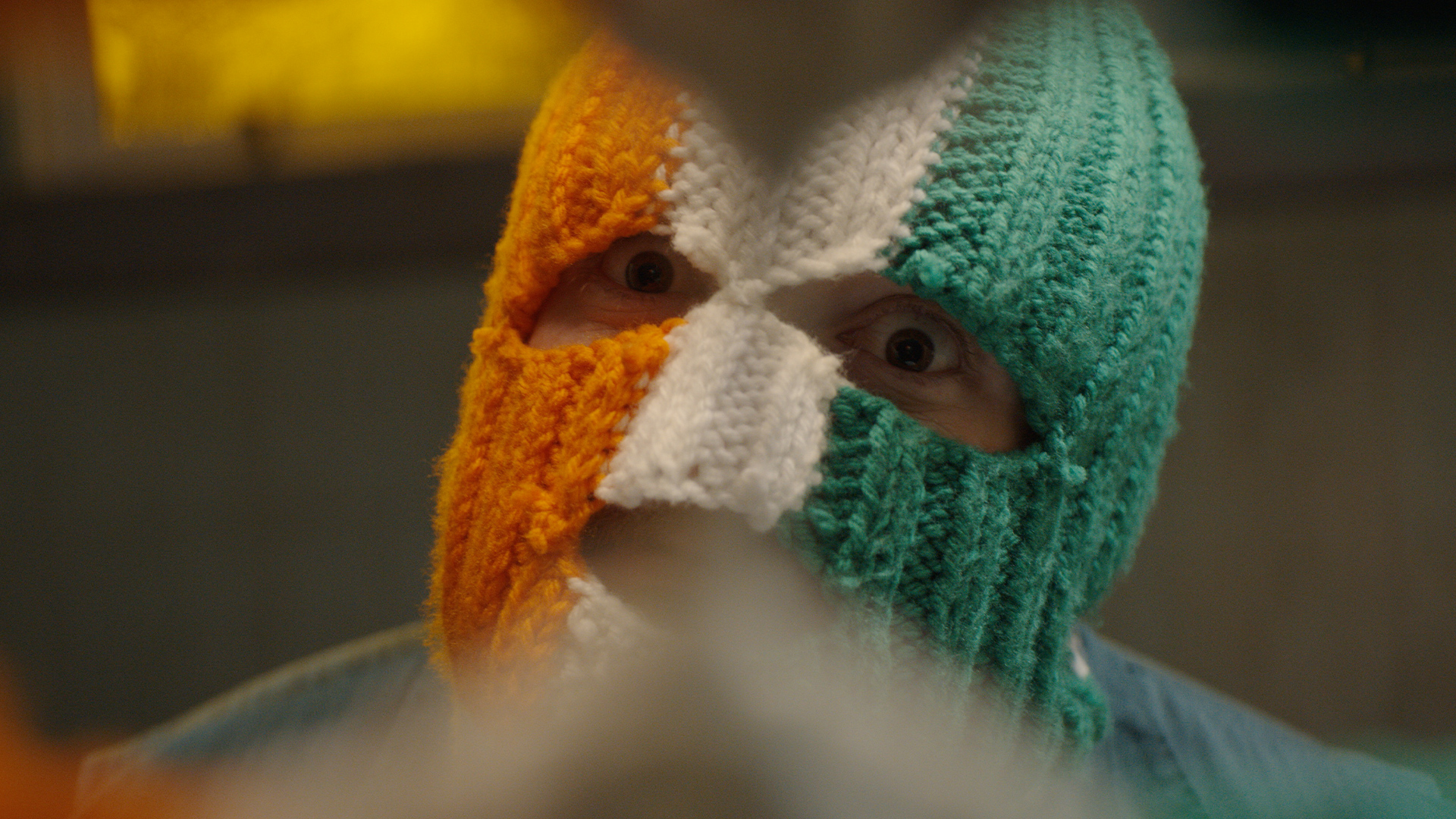
Peppiatt, an English director, copped a fair bit of jovial flack over 800 years of colonialism, but the lads love him, really.
“We won’t hold it against him,” Móglaí Bap jokes. “He went to Irish classes before filming, and everyone was asked, ‘Why are you here?’ And about half would say they’re inspired by Kneecap, to learn what the fuck we’re talking about.”
Alive and kicking
Stepping onto a set with Irish legend Simone Kirby (His Dark Materials) and Fassbender, playing Móglaí Bap’s parents was jaw-dropping. “When they showed up, we were like, ‘Whoa, fuck, now this could be a really big film,” Mo Chara laughs.
“The standard was a lot higher once Fassbender was on set,” Móglaí Bap adds. “Like, everyone’s acting and also the catering. Bring out the good china.”
They kept their cool and didn’t stress too much about taking notes. “You’re already playing a heightened version of yourself on stage,” Mo Chara says. “So we didn’t worry about ‘How am I gonna play myself?’”
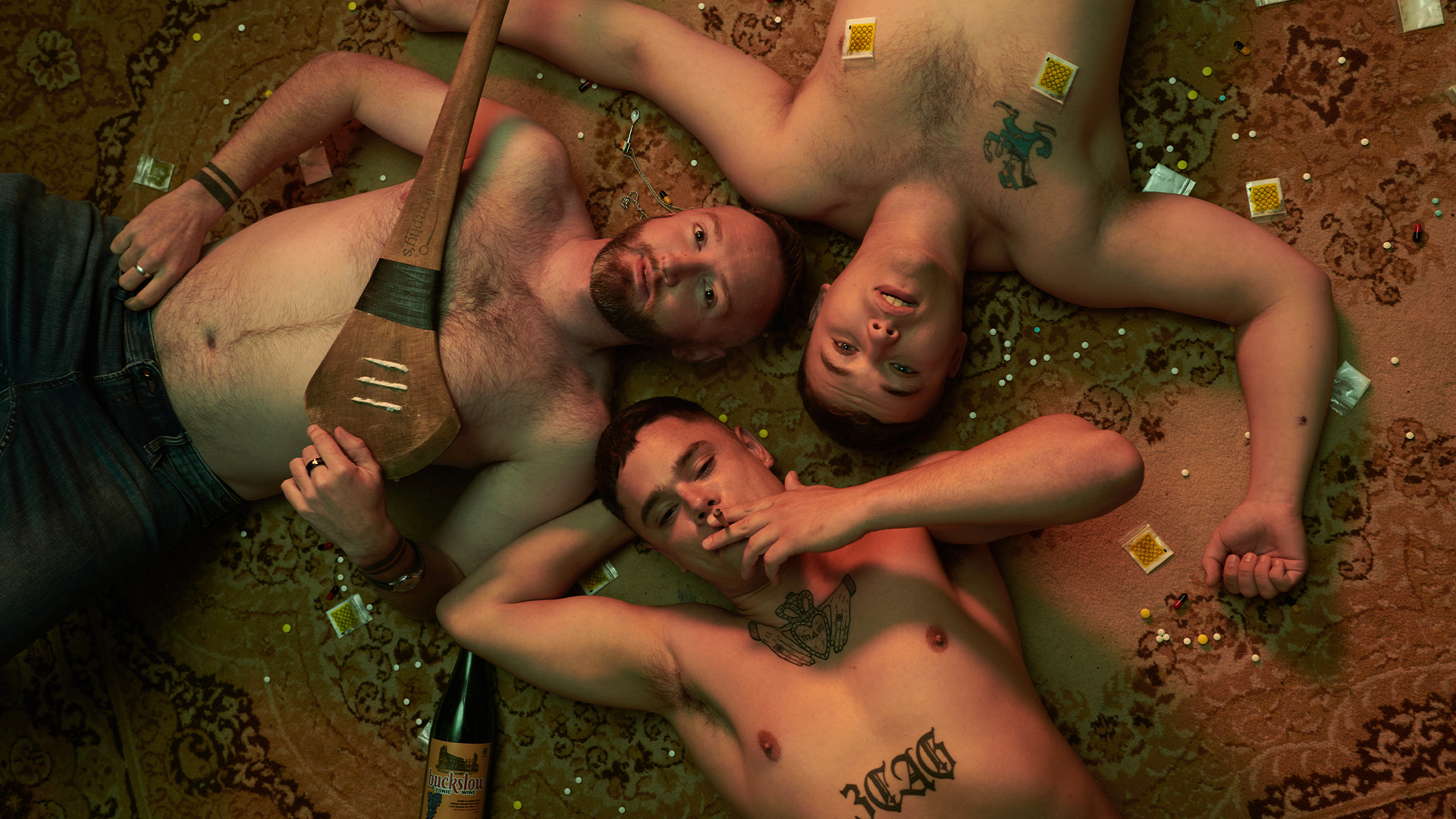
Touring Australia next year on the back of their new album Fine Art, Kneecap’s riding high. Time will tell if the UK’s new Labour government will drop a court case brought by the ousted Conservatives, attempting to claw back a cultural grant because of their barbs at Britain’s expense.
In need of no knighthood, the Kneecap lads are proud of what they’ve achieved through their music and now the movie of their own life. “A couple of years ago, I’d never have thought I’d be in a film, let alone one where I’m the star, acting as myself,” Mo Chara says. “It was very inconceivable when I was just a wee sperm.”
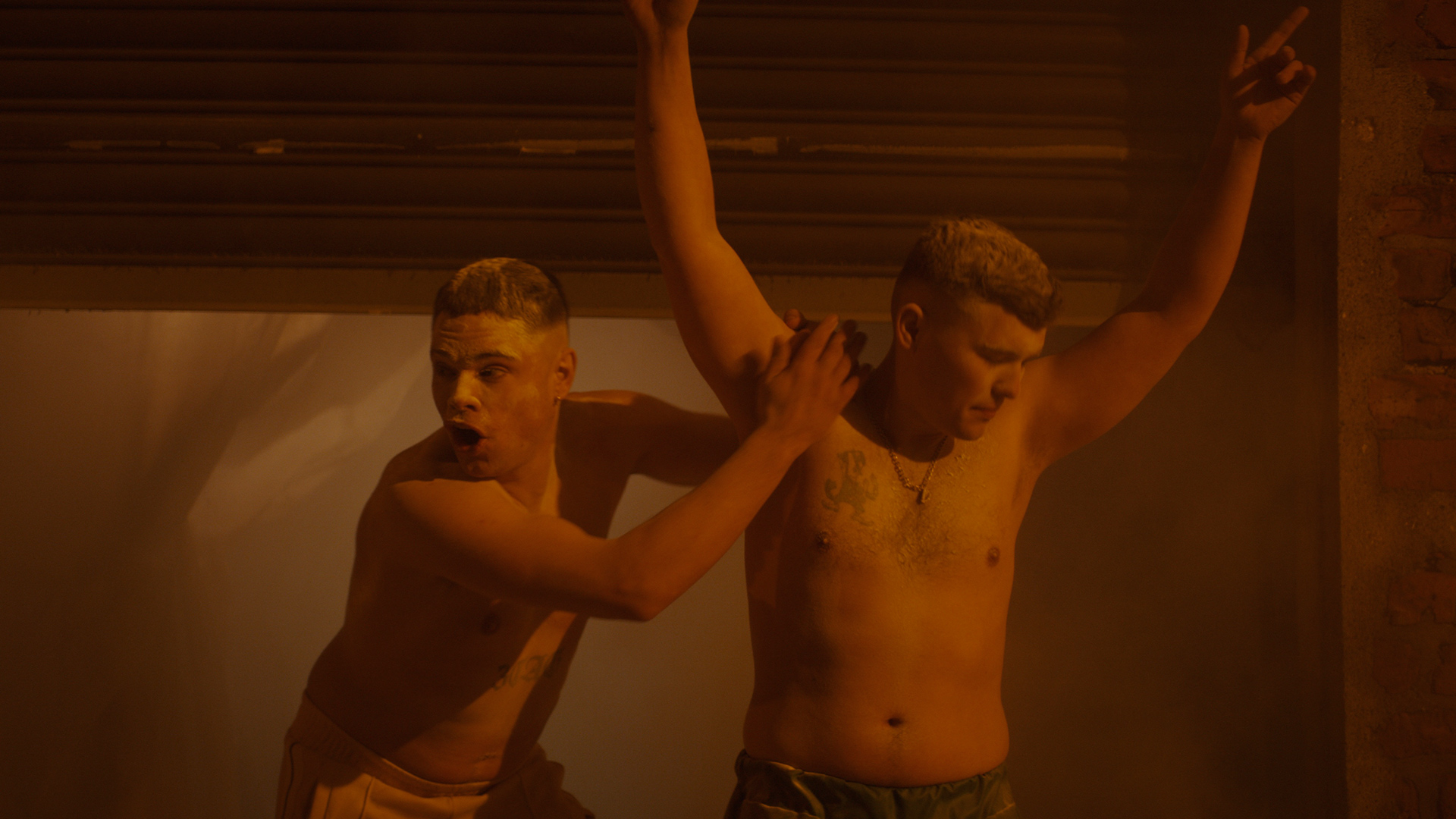
Proud of their part in keeping Irish alive and thriving, they loved hearing other Indigenous languages spoken when Kneecap debuted at the Sundance Film Festival earlier this year, winning the Audience Award.
“When people look at their own culture and their own identity and recognise that in us, it’s a proud moment” Móglaí Bap says. “Because once a language dies anywhere in the world, it’s very hard to get it back.”




















